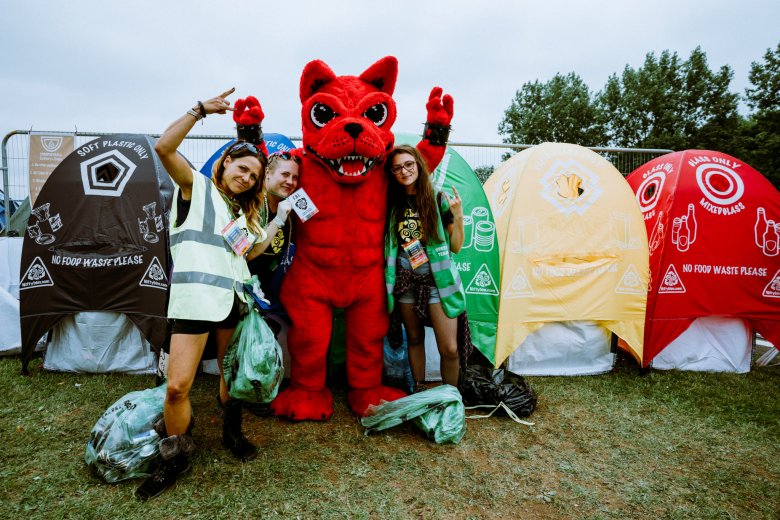The festival season is upon us with a vast range of music and alternative style festivals happening across the UK.
As a seasoned music festival goer, specifically Download Festival for me, I can absolutely confirm that improving sustainability and minimising environmental impact is high on the agenda, with year-on-year improvements being delivered. Festival organisers have developed comprehensive sustainability programmes from tent recommendations, a range of on-site sleeping arrangements, green buses to minimise CO2 emissions from travel as well as specific eco-camps.
Music festivals are a retreat for music lovers going to listen to their favourite bands in the great outdoors, having lots of fun comes with the need for regular food and refreshment. Event organisers have made significant attempts to minimise the litter and waste with re-usable cups, returnable options encouraging people to collect up empties from the floor in exchange for a discount on their next drink, as well as streamlining take-away containers from a material perspective. All great initiatives however behaviour is difficult to change in such a challenging environment / setting.
There is no doubt that often, when people find themselves in a crowd, with little access to disposal solutions and ‘in-the-moment’ when the bands are playing, revellers simply put their litter on the floor, despite possibly having the intention of taking with them, but rarely actually do.

This year I was pleased to hear that one vendor was unable to supply coffee cup lids. The lids they had were compostable which many may believe is a solution that would be great in a festival setting. Unfortunately, being compostable doesn’t necessarily mean that they will compost in a field. They need the right mixture of materials, oxygen, moisture and heat for the composting process. The organisers had banned the use of compostables so as not to contaminate the plastic recycling scheme. Basing their material selection on both the needs of the consumer as well as the local recycling infrastructure is definitely a positive move.
There are also the nightly clean up teams who trawl the fields collecting disregarded waste. This is not the most pleasant job but one that is much needed, particularly as many festivals, including Glastonbury, have been a risk of being cancelled due to littering issues in previous years.
Overall, great improvements are being made with organisers setting targets to minimise their environmental impact but still delivering the needs of their consumers / revellers. It is however slightly disappointing to see that there is still a long way to go with the packaging being selected for some of the merchandise on offer.
Gaynor Denton-Bray
I am an RIP camper and yes, this is rest in peace but is also a VIP camping solution, as I need a good night’s sleep. As part of my RIP package, I receive a ‘goody bag’ which this year consisted of a programme, lanyard with stage acts/timings, a pin badge, a t-shirt and with it being the 20th anniversary year, a garden gnome! Strange choice as last year it was a waterproof bag but nonetheless, an interesting gimmick that provoked several interesting conversations over the weekend.

I have to say, from a packaging perspective, I was pretty disappointed. Although great improvements have been made at the festival overall, the gnome packaging was very poor. With this being a UK based festival, my first thoughts (sadly) are disposal infrastructure and capabilities and how some of the packaging choices being made, do not align and don’t have an established recycling route.
The gnome is here in all his glory, as the cool rocker he is, with his fluted carton, LDPE bag and two significant chunks of EPS (expanded polystyrene). He is overpackaged and with poor material / format selection, but the gnome was not alone though. There were also other items available in the same type of packaging.
Across the merchandise stalls clothing is sold, without packaging, which is now common practice however, some items such as blankets were in heavy duty vac packed solutions – such an unnecessary use of packaging. Examples of single-use packaging at its worst, offering still so many opportunities to improve further.
We are only at the start of the festival season, with the largest being Glastonbury happening this week. I’d love to hear what improvements have been made or if like the Download Festival, there are still significant improvements to be made.
It would be great to connect with event organisers as at Aura, we have the expertise to help you make your next step in improving your sustainability credentials, particularly in relation to your packaging. I also look forward to Download 2024 and seeing the next instalment of sustainability







